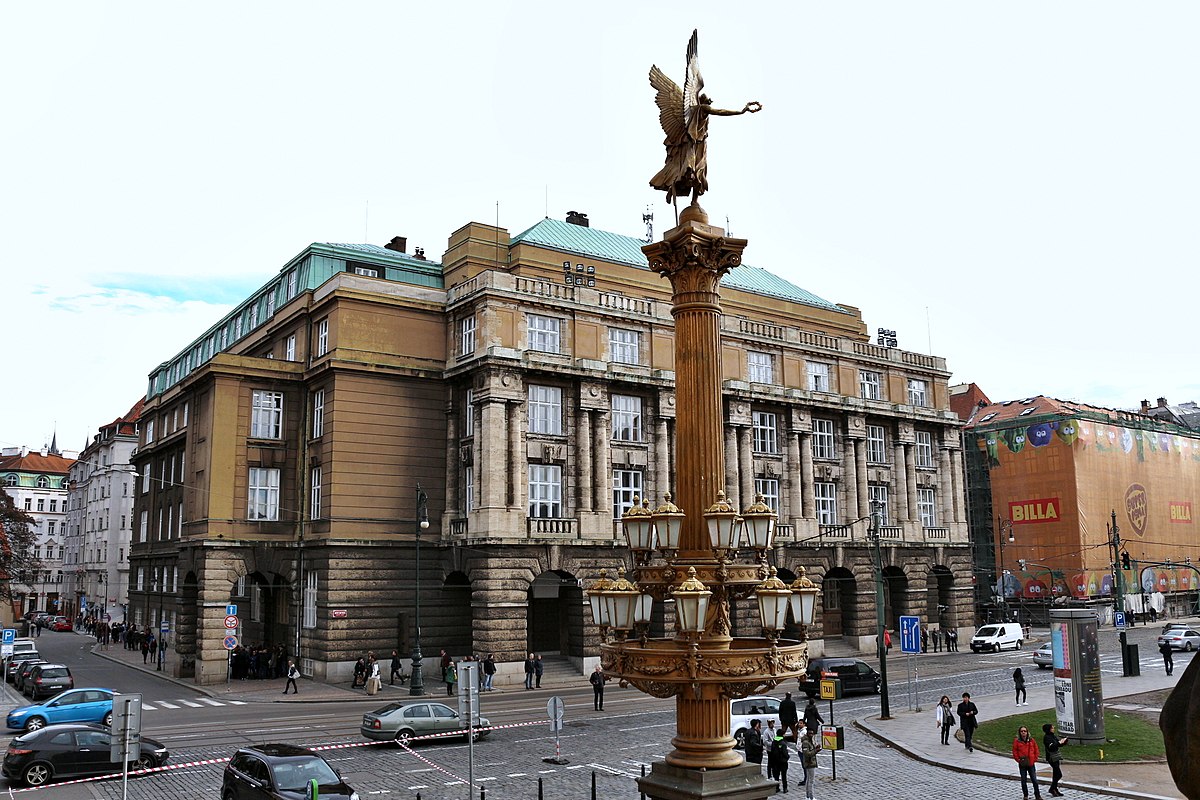
University education is increasingly becoming hostage to political upheavals in a variety of countries. Mass migrations of scientists by entire teams are the new reality of academic life. What are the main problems of scientists in exile? Do they have a chance to preserve traditions, scientific schools, and programs? This and much more was discussed by participants of the international conference Sustainable Knowledge: Lessons from Universities, Scholars and Students in Exile, which was recently held in Vilnius at the initiative of the American organization Scholars at Risk/SAR and the European Humanities University (EHU) in Exile.
Info
Scholars at Risk/SAR is an international network of scholars, as well as scientific and educational organizations. Its goal is to protect teachers and researchers, and support the principles of academic freedom. SAR was founded at the University of Chicago in 1999. A large international conference in June 2000 launched SAR on a global level (SAR’s Bylaws). Since 2003, SAR has been operating at the Greenwich Village campus of New York University. Over the years, SAR has initiated the most significant international efforts to provide systemic assistance to scholars, universities, and students who are at risk in their home countries. The main areas of activity are the safety of scholars and students, advocacy, and research. SAR has a broad international presence, with offices in the United States, Israel, Western and Eastern Europe
The European Humanities University (EHU) was established in Minsk in 1992. The founder of EHU and its first rector, Academician Anatoly Mikhailov (with the support of the UN, EU, Belarusian authorities, cultural and business organizations) created the first independent educational institution in post-Soviet Belarus modeled on Western colleges and universities. Education at EHU is based on fundamental study of the humanities and social sciences. By 2004, the political climate in Belarus had changed radically, academic freedom seemed dangerous to the Belarusian authorities, and EHU’s license was revoked. Students and teachers managed to move the university: since 2005, EHU has been based in Vilnius with the support of the Lithuanian authorities and the European Commission.
Academic Exiles in the Struggle for Survival
“We want to learn from every university, every scholar and every student to make our work more effective,” was how SAR Director Robin Quinn formulated the message of the conference, which discussed the experience of countries where higher education has undergone dramatic changes. The lessons of Ukraine, Afghanistan, Gaza, the USA, Belarus and Russia are important for the entire academic community, despite the fact that each of these countries has a specific situation. Scientists flee for various reasons, but the result of this flight has become a new growing industry – universities in exile, noted Lisa Anderson, chair of the board of directors of SAR.
The main news about the life of scientists during the war, videos and infographics – in the T-invariant Telegram channel. Subscribe to stay up to date.
One of the striking examples is the European Humanities University, which spent most of its life in exile. On the one hand, its experience gives hope: such an institutional approach allows not only to continue teaching students, but also to preserve national humanities. On the other hand, not every university is able to overcome the institutional barriers that stood in the way of the founders of EHU. The first rector of EHU, Anatoly Mikhailov, and the former president of the American Academy of Arts and Sciences, member of the EHU Governing Council and the SAR Board of Directors, Jonathan Fanton, spoke about the beginning of EHU’s work in Vilnius twenty years ago: they talked about the various difficulties of relocation, including political threats, and how to teach in new realities. Member of the Seimas of Lithuania, Žygimantas Pavilionis, shared his memories of how he managed to convince the European Commission to help the project and support the university: it is clear that preserving academic freedoms, especially in the humanities, gives hope that the future Belarus will easily fit into the single European space.

European Humanities University in Vilnius. Photo: https://belsat.eu
The problems EHU faces are relevant for many scientists around the world. The main issue, as noted by EHU professor Irina Romanova, is legal status: visas, residence permits and the right to work. Bureaucratic barriers are still the main problem of “academic nomads”.
Another problem common to expelled scholars and students is the high and not always fair competition for positions at Western universities. As a rule, they get short-term (two to three years maximum) scholarships for teachers and students, which puts the exiles in a clearly vulnerable position. There is no way to return: their work (and sometimes freedom) in their homeland is under threat, as noted by Science at Risk Emergency researcher Philipp Christoph Schmedecke. And only a very few can fit into the classic academic track on the educational market on the fly.
Academic courage
Against this background, a special situation is developing with Ukrainian universities, with teachers and students who have to study under bombing. The conference featured a Ukrainian panel, where those who left Ukraine were represented by Zarina Boyarska (Vilnius University), and those who remained in Ukraine were represented by Anastasia Lutsenko, an expert in Science at Risk and scientific coordinator of the Academ.City project of the National Academy of Sciences of Ukraine.
In addition to the bombings, Ukrainian scientists and students face the same difficulties as all refugees. Despite all the hospitality towards Ukrainians in the West, the problems do not go away, and loneliness and lack of connections are aggravated by the sad news from their homeland. But you can’t deny the courage and determination of Ukrainians: many Ukrainian scientists have found new positions, and those who remained in Ukraine have learned to teach and research in war conditions. According to the Ukrainian government, cited by SAR, the Russian invasion has damaged 59 university campuses and destroyed nine.
This academic courage has not gone unnoticed. Scholars at Risk has awarded scholars from Ukraine the 2024 Courage to Think Award.. The award was received by a representative of Mariupol State University, which moved to Kyiv in February 2022 after the destruction of Mariupol.
An equally important example, both frightening and inspiring, is the American University in Afghanistan (AUAF). Forced to flee Afghanistan, AUAF settled in Doha, Qatar and continued to provide Afghans with hybrid online-offline education. There is no other place where Afghan women can get higher education. And, of course, the risk that students, and especially female students, take is very high.
Get out of the tower
One of the central topics of the conference was Russian education – inside and outside the Russian Federation. Probably, for the first time since the beginning of the Russian invasion of Ukraine, a separate Russian session was organized at such a large international educational and scientific conference. Is it possible to interact with colleagues who remained in Russia and how exactly? Is it worth putting them at risk? Do they need it?
The moderator of the first part of the Russian panel Dmitry Dubrovsky (MA in Russian Studies — Boris Nemtsov program, Charles University, Prague) proposed creating a coalition or congress of Russian academic groups abroad. There are already several institutions created by Russian-speaking scientists abroad: educational Free University (Riga), Boris Nemtsov Master’s Program at Charles University in Prague, Faculty of Liberal Arts and Sciences in Montenegro, and several academic associations, for example, Association of Russian-speaking scientists RASA.
However, there are still many people who are not covered by any structure, although they need collective support. Especially considering that the emigration of scientists from Russia will only increase.

Charles University in Prague. Photo: https://ru.wikipedia.org
Higher education in the Russian Federation is gradually shrinking: strict ideological instructions from the authorities impose strict frameworks on teachers and, accordingly, on students. The absence of civil and academic freedoms does not contribute to the prosperity of education in any way; it lives in survival mode. There is even public evidence of this — an interview with Vadim Volkov, Rector of the European University at St. Petersburg. According to OVD-Info, in 2024 alone, 43 people — teachers, scientists, students, and schoolchildren — were prosecuted under anti-war articles. And about a hundred teachers and scientists, according to the “Chronicle of Persecution of Scientists” — T-invariant project, have been fired and have experienced pressure from the authorities over the past two years because of their professional activities.
But what should those of them do who, due to the impossibility of continuing their work, decided to leave Russia? Does Russian-language education and science have a chance to preserve traditions, scientific schools and programs in exile? Especially if we take into account the specific attitude towards everything Russian in the West — understandable, but traumatic for the exiles and creating many more obstacles for them than for exiles from other countries. As the conference in Vilnius showed, the fate of Russian scientists is of interest not only to them. The solidarity of scientists is above the political contradictions caused by the crimes of the Russian regime. Physicist Encieh Erfani, an exile from Iran working at the University of Mainz in Germany, resolutely stood up for her Russian colleagues: in her opinion, the unenviable fate of Russians attracts too little attention from the global scientific community.
One way to reverse the negative attitude towards all those fleeing Russia is to create various kinds of coalitions that help preserve and develop the traditions of uncensored Russian education. The first step towards this is to organize a platform for exchanging information about work and study.
“The idea of creating a single value platform for Russian scientists is a good idea,” emphasized Vasily Zharkov, a visiting lecturer at EHU and former dean of the political science department at Shaninka. “And we could right now create an academic community here in exile. At least create some elements, including organizing cooperation with other organized groups — journalists and various activists. Some steps are clearly expected from the academic community; it’s time to come out of the ivory tower.”
One of the attempts to come out of it was the interaction of Ukrainian scientists in the open part of the Russian session. The “Russian” side was represented by Ksenia Luchenko (Faculty of Liberal Arts and Sciences, Montenegro), the already mentioned Dmitry Dubrovsky, Ilya Kalinin (independent educational project “Smolny without Borders”), and the Ukrainian side by Oleksandr Shtokvich from the Central European University in Vienna. The conversation was about the possibility of organizing joint academic and student projects despite the war.
Ksenia Luchenko shared the experience of Montenegro, where for many reasons three diasporas, usually separated, have found refuge: Ukrainians, Belarusians and Russians – and this unification rather helps the cause than hinders. Other participants recalled many stories about interactions between Russian and Ukrainian colleagues on a personal level after the war began, and the main impression was that there is an opportunity for fruitful joint work. Now this is one of the few thin plates on the basis of which in the future it will be possible to try to build a dialogue between Russians and Ukrainian society.
Text: Alexandra Merkulova